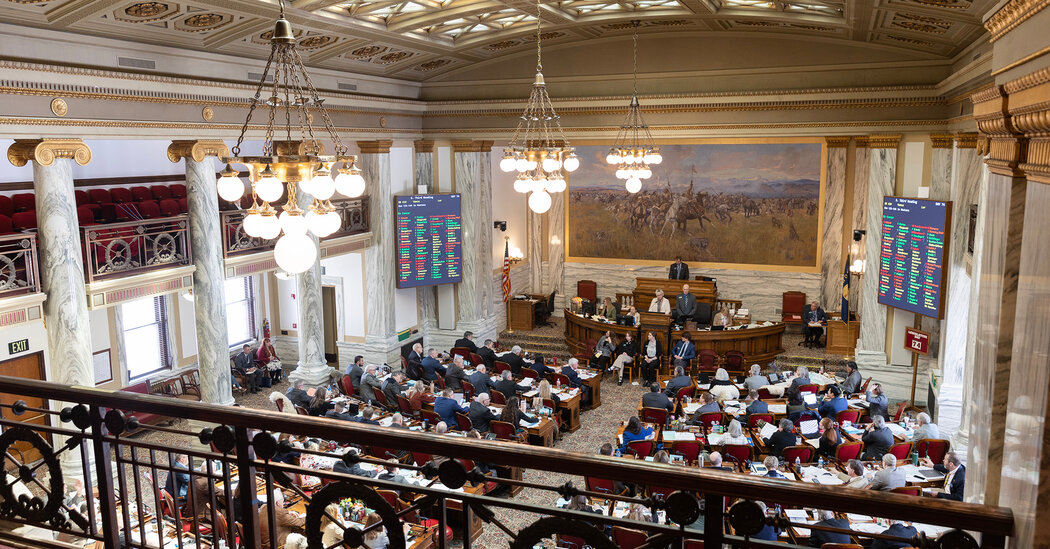Montana’s House of Representatives passed a total ban on TikTok in the state on Friday, appointing the state’s Republican governor to sign the first ban of its kind into law.
The legislation, which would also ban app stores from carrying TikTok, the wildly popular viral video app, passed 54 to 43 in the last of two votes in the State House. The Senate approved it in March.
Gov. Greg Gianforte must decide whether to sign the bill into law, veto it or do nothing 10 days after receiving the bill and let it become law without his signature. A spokeswoman for Mr Gianforte did not immediately respond to a request for comment.
A TikTok spokeswoman, Brooke Oberwetter, said in a statement that supporters of the bill admitted they had no viable plan to implement the ban.
“We will continue to fight for TikTok users and creators in Montana whose livelihoods and First Amendment rights are threatened by this blatant government overreach,” she said.
The Republican-controlled Montana legislature has become an unlikely battlefield in recent weeks in a growing technology battle between the United States and China. Lawmakers in Washington have said for years they believe TikTok, which is owned by Chinese company ByteDance, could provide information to Beijing or be used to spread propaganda. The Biden administration has told TikTok it wants the Chinese owners to sell their stake in the app or face a possible national ban.
Concerns about the app arose when the US government attempted to hinder Chinese telecommunications companies and chip makers from supporting their competitors. In 2020, the government forced a Chinese company to sell the dating app Grindr.
Under Montana law, TikTok could face fines if it continues to operate in the state, as can Apple and Google if they allow users to download the app. The law lifts the ban, which would take effect in 2024, if TikTok is sold to a company not founded in a hostile nation.
The ban’s supporters say Beijing could use the app to obtain users’ data in Montana. They point to ByteDance’s admission that some of its employees improperly accessed journalists’ data while investigating leaks about the company.
Montana finds itself in uncharted territory when it tries to ban the app. A trade group funded by Apple and Google has said the companies can’t stop downloading apps in a single state. Critics of the legislation say TikTok users can hide their location to maintain access to the app, and the ban is difficult to enforce in border towns.
Lawmakers narrowly voted against a proposed amendment to the bill that would have extended the ban to all online services that provided data to hostile powers.
The ban is likely to be challenged in court if it becomes law. The American Civil Liberties Union and other free speech groups have said the bill violates the First Amendment rights of Montana residents using the app. But the state’s attorney general, whose office drafted the bill, has said he is prepared for a lawsuit.

